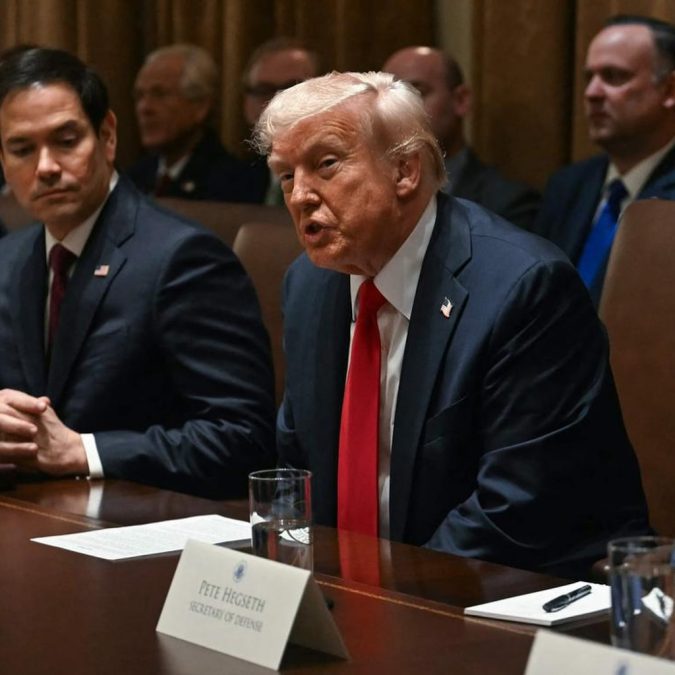US President Donald Trump sparked controversy on Saturday by calling for jail time for six Democrats who appeared in a video urging military officers to refuse illegal orders.
Trump posted on social media, stating: “THE TRAITORS THAT TOLD THE MILITARY TO DISOBEY MY ORDERS SHOULD BE IN JAIL RIGHT NOW, NOT ROAMING THE FAKE NEWS NETWORKS TRYING TO EXPLAIN THAT WHAT THEY SAID WAS OK.” He described their actions as “SEDITION AT THE HIGHEST LEVEL” and insisted there could be no other interpretation.
The video, shared on Friday, featured Senators and Representatives with military or intelligence backgrounds, including Arizona’s Mark Kelly, Michigan’s Elissa Slotkin, and members Jason Crow (Colorado), Chris Deluzio (Pennsylvania), Chrissy Houlahan (Pennsylvania), and Maggie Goodlander (New Hampshire). In the video, they encouraged service members to refuse illegal orders, though they did not specify which orders they were referencing.
Trump’s statement comes amid ongoing scrutiny of his military decisions. During his tenure, he deployed the National Guard in several US cities against local officials’ wishes and ordered strikes on alleged drug-smuggling vessels in the Caribbean and Pacific, resulting in more than 80 deaths. Experts have questioned the legality of some of these actions.
This is not the first time Trump has hinted at severe punishments for perceived disloyalty. In 2023, he referenced the death penalty following comments by former US military officer Mark Milley, who had contacted his Chinese counterpart after the January 6, 2021 Capitol riots to reassure Beijing that the United States remained stable.
Democrats have condemned Trump’s remarks as “absolutely vile” and a threat to lawmakers who have served their country. The confrontation highlights ongoing political tensions as Trump continues to maintain a highly visible presence in US politics.
As the debate over military loyalty and civilian oversight intensifies, Trump’s comments are likely to fuel further divisions between former and current government officials, raising questions about the limits of political speech in the United States.

